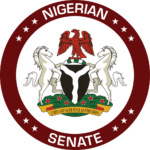By Lucy Ogalue
The Independent Media and Policy Initiative (IMPI), has urged Nigerian leaders to learn from years of poor resource management that caused repeated poverty even during times of oil boom.
The IMPI said this in a policy statement signed by its Chairman, Dr Omoniyi Akinsiju on Friday in Abuja.
The think-tank said Nigeria’s poverty crisis was not caused by lack of resources, but by successive governments’ failure to manage the resources prudently and sustainably.
The group said the country’s experience between 1980 and 2015 showed how poor policy choices and neglect of critical sectors such as agriculture and manufacturing entrenched widespread poverty and economic vulnerability.
The group said the oil boom years exposed Nigeria to what economists described as the “Dutch disease”.
“This is where a sudden rise in oil revenues led to exchange rate appreciation, reduced competitiveness of local industries, and neglect of non-oil exports.
“The massive inflow of oil income created a false sense of prosperity, but it distorted the economy, diverted labour from agriculture, and weakened domestic production capacity,” it said.
The IMPI said the so-called “Nigerian disease,” a situation where rural workers abandoned farming for urban jobs that offered temporarily higher wages, further worsened poverty and food insecurity across the country.
It said that while government spending during the oil boom focused on large capital projects, most of them were uncompleted or unproductive, creating little employment and limited long-term benefit to citizens.
“The misallocation of resources in agriculture included uncompleted irrigation projects, over-mechanisation, and policies that favoured wealthy farmers over smallholders. These errors worsened inequality and reduced productivity.
“Even when the economy experienced growth spurts, poverty remained high because successive administrations failed to provide social protection for vulnerable groups or establish a sustainable safety net.
“After the collapse of oil prices in 1982, the economy faced inflation, debt, and foreign exchange rationing.
“This exposed the fragility of the system and revealed how weak policies had hollowed out the productive sectors,” it added.
The IMPI said the persistence of poverty amid growth emphasised the gap between economic expansion and inclusive development, stressing the need for reforms that prioritise human capital and domestic productivity.
The organisation urged current and future governments to ensure that macroeconomic growth was matched with effective social investment, transparency, and policy consistency.
It said that only a deliberate effort to correct the structural distortions of the past would guarantee lasting prosperity for Nigerians.
The group reaffirmed its commitment to supporting policy reforms that promoted economic diversification, social protection, and responsible governance as foundations for sustainable development. (NAN)(www.nannews.ng)
Edited by Ese E. Ekama-Williams












